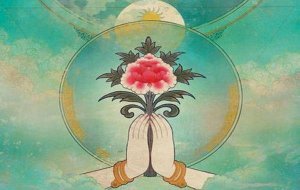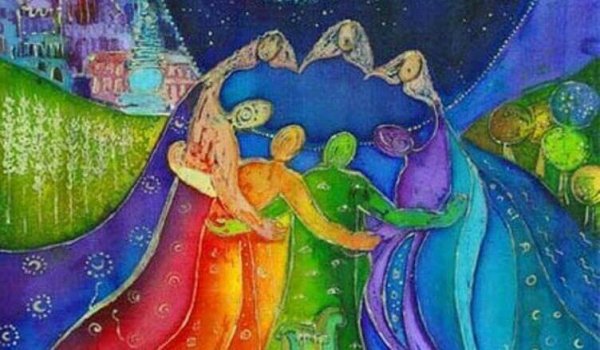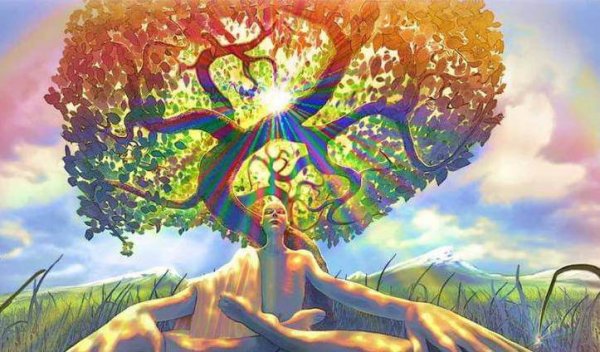10 Quotes to Understand Karma

We hear the word karma a lot. We generally talk about karma when something bad happens, and we see it as a kind of payback life gives us for doing something bad. But the truth is that thinking of it that way isn’t exactly right. So today we’re going to compile some great quotes on karma so we can understand it better.
The word karma comes from Sanskrit. Basically it means an invisible, all powerful force that takes shape around each of our actions. This force has consequences, which are essentially a symbol for the law of cause and effect.
“Problems or successes, they all are the results of our own actions. Karma. The philosophy of action is that no one else is the giver of peace or happiness. One’s own karma, one’s own actions are responsible to bring either happiness or success or whatever.”-Maharishi Mahesh Yogi-
Human beings are free and we can always act however we want. Our choices will determine what happens to us in the future. There’s no good luck or bad luck, only consequences of our actions, and a lot of them don’t show up for a long time.
Quotes to understand karma
We’re going to start with a beautiful quote that goes right to the heart of karma. The quote is by Edwin Hubbel Chapin, and goes: “Every action of your life touches on some chord that will vibrate in eternity.” This means that there are no actions too small to have some effect on time.

The next quote is by Eckhart Tolle. It will help you understand a truth that escapes us a lot of the time: we experience exactly what we’re supposed to experience.
The quote goes: “Life will give you whatever experience is most helpful for the evolution of your consciousness. How do you know this is the experience you need? Because this is the experience you are having at the moment.”
Then there’s the thinker Robert Louis Stevenson. He once said, “Don’t judge each day by the harvest you reap but by the seeds that you plant.” This statement points to another fundamental part of karma: you reap what you sow.
Relationships with people and karma
The relationships you have with people are one of the biggest aspects of the law of karma. This quote by Frank Ocean, for example, reminds you that no one comes into your life by chance. It goes: “We met for a reason. Either you’re a blessing or a lesson.”
Along the same lines, Elbert Hubbard reminds us that our relationships, whether good or bad, aren’t random. We are the ones who create them and give them their shape. “We awaken in others the same attitude of mind we hold toward them.”

That quote fits in well with one by Wayne Dyer, where he says that: “How people treat you is their karma; how you react is yours.” It’s an invitation to focus on how you act instead of focusing on how other people do.
A Buddhist teacher named Ma Jaya Sati Bhagavati said something interesting too: “When you plant a seed of love, it is you that blossoms.” This is his way of saying that giving does much more for you than receiving.
Karma and consciousness
This quote by Vera Nazarian is a great description of what karma is. She says: “Karma is not an inviolate engine of cosmic punishment. Rather, it is a neutral sequence of acts, results, and consequences.” It clears up the idea that there’s no divine punishment for your actions. Instead, it’s your actions themselves that lead to a positive or negative consequences.
Deepak Chopra expresses a similar idea in this quote: “Karma, when properly understood, is just the mechanics through which consciousness manifests.” What he’s saying is that it is your responsibility: if you act wrong, you can’t expect a positive life. Bad leads to more bad, just like good leads to more good.

Another important characteristic of karma is eternal repetition. This is the idea that life will bring you the same difficult experiences until you become fully conscious of them. Ben Okri describes it well: “The law is simple. Every experience is repeated or suffered till you experience it properly and fully the first time.”
Eastern cultures have always had a lot to teach us. The law of karma is no exception. Although in some societies it has very deep connotations that go way beyond what we’ve talked about, it’s still a valuable guide for people in the Western world.
We hear the word karma a lot. We generally talk about karma when something bad happens, and we see it as a kind of payback life gives us for doing something bad. But the truth is that thinking of it that way isn’t exactly right. So today we’re going to compile some great quotes on karma so we can understand it better.
The word karma comes from Sanskrit. Basically it means an invisible, all powerful force that takes shape around each of our actions. This force has consequences, which are essentially a symbol for the law of cause and effect.
“Problems or successes, they all are the results of our own actions. Karma. The philosophy of action is that no one else is the giver of peace or happiness. One’s own karma, one’s own actions are responsible to bring either happiness or success or whatever.”-Maharishi Mahesh Yogi-
Human beings are free and we can always act however we want. Our choices will determine what happens to us in the future. There’s no good luck or bad luck, only consequences of our actions, and a lot of them don’t show up for a long time.
Quotes to understand karma
We’re going to start with a beautiful quote that goes right to the heart of karma. The quote is by Edwin Hubbel Chapin, and goes: “Every action of your life touches on some chord that will vibrate in eternity.” This means that there are no actions too small to have some effect on time.

The next quote is by Eckhart Tolle. It will help you understand a truth that escapes us a lot of the time: we experience exactly what we’re supposed to experience.
The quote goes: “Life will give you whatever experience is most helpful for the evolution of your consciousness. How do you know this is the experience you need? Because this is the experience you are having at the moment.”
Then there’s the thinker Robert Louis Stevenson. He once said, “Don’t judge each day by the harvest you reap but by the seeds that you plant.” This statement points to another fundamental part of karma: you reap what you sow.
Relationships with people and karma
The relationships you have with people are one of the biggest aspects of the law of karma. This quote by Frank Ocean, for example, reminds you that no one comes into your life by chance. It goes: “We met for a reason. Either you’re a blessing or a lesson.”
Along the same lines, Elbert Hubbard reminds us that our relationships, whether good or bad, aren’t random. We are the ones who create them and give them their shape. “We awaken in others the same attitude of mind we hold toward them.”

That quote fits in well with one by Wayne Dyer, where he says that: “How people treat you is their karma; how you react is yours.” It’s an invitation to focus on how you act instead of focusing on how other people do.
A Buddhist teacher named Ma Jaya Sati Bhagavati said something interesting too: “When you plant a seed of love, it is you that blossoms.” This is his way of saying that giving does much more for you than receiving.
Karma and consciousness
This quote by Vera Nazarian is a great description of what karma is. She says: “Karma is not an inviolate engine of cosmic punishment. Rather, it is a neutral sequence of acts, results, and consequences.” It clears up the idea that there’s no divine punishment for your actions. Instead, it’s your actions themselves that lead to a positive or negative consequences.
Deepak Chopra expresses a similar idea in this quote: “Karma, when properly understood, is just the mechanics through which consciousness manifests.” What he’s saying is that it is your responsibility: if you act wrong, you can’t expect a positive life. Bad leads to more bad, just like good leads to more good.

Another important characteristic of karma is eternal repetition. This is the idea that life will bring you the same difficult experiences until you become fully conscious of them. Ben Okri describes it well: “The law is simple. Every experience is repeated or suffered till you experience it properly and fully the first time.”
Eastern cultures have always had a lot to teach us. The law of karma is no exception. Although in some societies it has very deep connotations that go way beyond what we’ve talked about, it’s still a valuable guide for people in the Western world.
This text is provided for informational purposes only and does not replace consultation with a professional. If in doubt, consult your specialist.







